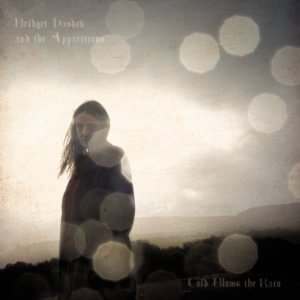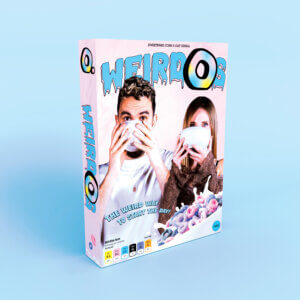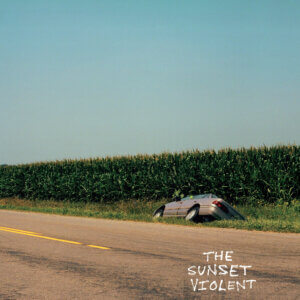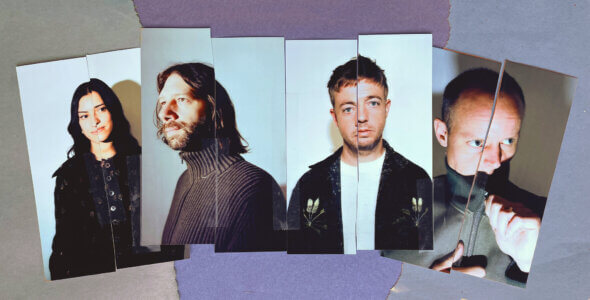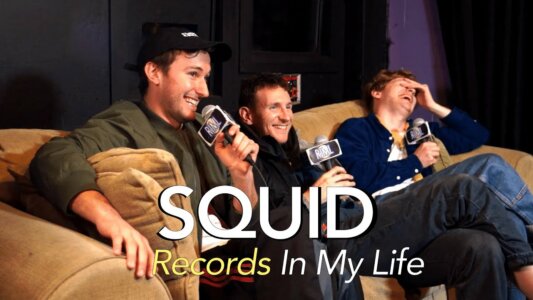Squid Aren’t Resting On Their Laurels
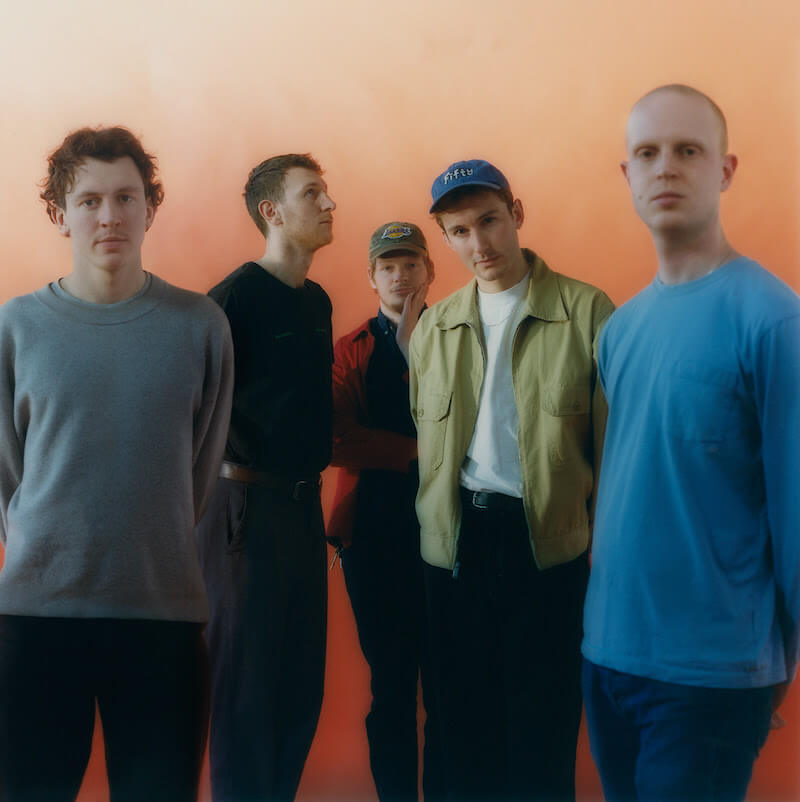
When Brighton-based quintet Squid released Bright Green Field in 2021, it was met with universal acclaim, described by one outlet as “a debut for the ages.” Not wasting any time or resting on their laurels, the band – who expertly shift between post-punk, krautrock and ambient led arrangements- immediately got to work on their equally striking second record via Warp Records, O Monolith.
Much of the new material was developed whilst touring their debut, and fine tuned later in the studio. Their latest body of work continues to demonstrate their collective instinct towards exploring interesting, sometimes otherworldly, terrain with their instrumentation, while vocalist and drummer Ollie Judge delivers lyrics that bring a sense of the ordinary to extraordinary compositions. Working once again with producer extraordinaire Dan Carey (Black Midi, Fontaines DC, Wet Leg), Squid have truly pushed boundaries and their own capabilities with O Monolith. Having just finished up a day working away in a studio in North London, Squid guitarist Louis Borlase, told Northern Transmissions about the writing and recording of O Monolith and how this record opened them up even more to collaboration and the importance of challenging yourself when making music.
NT: Congratulations on O Monolith, it’s such a fascinating and fantastic follow-up to Bright Green Field. For me, it conjured a similar feeling to the debut when I listened to it for the first time in that it makes such an incredible first impression. What was it like for you and the band when you all gathered together and listened to the final master of O Monolith for the first time?
BORLASE: We were talking about this a while ago, actually, and I think the only time that we sat and listened to it together was when we went into the Warp office to celebrate it being finished and the master of the record coming through. We sat down and everybody was there so we were all kind of like, “Oh, this is actually kind of nerve wracking,” because we’re playing it straight through from start to finish, listening to every single tune and you can read everyone’s facial expression. You had to go by whether or not people were like bopping their feet or head to know if they were enjoying it. Some people were, so it was good!
NT: I was reading that you began working on the songs that would eventually become O Monolith only 2 weeks or so after Bright Green Field was released, while you were out on tour. I saw a quote from Ollie [Judge, Squid’s vocalist and drummer] where he said, “Without that tour we wouldn’t have any of these tracks.” Tell me about the early days of these songs whilst on the road and how important it is for Squid to incorporate spaces within your sets to enjoy jamming and improvising in
front of an audience?
BORLASE: Yeah, that was The Fieldworks tour that we did which was us mainly playing some new music. That was the first socially distance tour that we’re allowed to do. so it was completely seated which was so strange.
I think it was the first time we were touring songs where a large proportion of them were instrumental, for a while. That was really healthy for us because it gave us a bit of a confidence boost to be able to take really embryonic or skeletal ideas for pieces of music and let them have their own safe space on stage. That’s usually something we only really get to do when it’s just the five of us writing in a room. So, yeah, that was definitely pretty monumental in the writing of the record because it allowed us to look at the idea of going off the beaten track while playing in some rural areas of the UK. A lot of them were unusual venues where it’d be like in a church with really bad acoustics or the one in London was an outdoor show in the docklands. It was very bizarre because it was where the cable cars go over towards the docklands and North Greenwich and such. It was really good to have that time because the tracks were pretty, I mean it was early days for a lot of them, but we were playing early examples of “Undergrowth” and “The Blades”, which have come a really long way since. We’ve lived with these songs for quite a while.
NT: Did you enjoy that way of developing songs compared to how you wrote and recorded Bright Green Field? What approaches from O Monolith’s process would you take forward for future recording sessions?
BORLASE: It’s funny, it kind of changes every time because with Bright Green Field, that was an amalgam of all the music that we’d been formulating our sound and style of playing with over the space of around three or four years. And then with O Monolith, it was everything after Bright Green Field, which had sort of shrunk down to about 18 months. I think we’re always interested in the idea of what it means to have this kind of temporal role; the time urgency or time spent really living with ideas, and how that impacts what you’re trying to do when telling the story of a record.
Someone else that I was talking to had a nice thing to say, which was that they’d kind of observed O Monolith as like a bit of a patchwork quilt of ideas. If you compare when we were writing “Green Light”, which is probably the last track we were writing before we hit the record button, and then “Undergrowth”, which we’ve been playing in the live set for like a year, those songs have lived with us for differing amounts of time. So, you’re always taking something from that, you know, that temporal quality to the music.
NT: Something I enjoyed about O Monolith compared to Bright Green Field, which from the album artwork and its title made it feel rooted to a certain place, whereas your latest record felt like the listener was being transported into space, or another dimension. Maybe that’s because of there being more of a focus on the synths and keyboards as well as there being a lot more brass and woodwind, and even the choral harmonies. There’s also a different side to the 1970s influence in O Monolith, I thought of Pharoah Sanders and Frank Zappa sometimes whilst listening. Did you have different reference points of albums and artists that you wanted to incorporate or draw influence from for O Monolith?
BORLASE: Yeah, I think so. I think it kind of boils down to the conversations we were having with each other as a band. With this record, as a follow-up, we wanted to completely try and take what we’re capable of outside the remit of us five friends making music together. Obviously, that remains the core and the structure to anything that we ever do because we compose totally collectively, which is a really nice thing, but the idea of bringing in, as you say, like different voices and additional musicians that was huge.
With those choral parts and extra musicians in mind, me and Laurie [Nankivell, Squid’s bassist and brass player] were quite obsessed with a film called Arcadia, which I guess, is like a video essay of the history of the British Isles and how strange a place it’s always been. You know, steeped in bizarre vernacular and folk culture and weird traditions and the music of that film is by Adrian Utley of Portishead and Will Gregory from Goldfrapp. And they kind of inflect all of their folk ideas on that soundtrack with really quite like sinister and cold sounding electronics. That was something that we wanted to push on this record, to make it a lot more electronic.
But at the same time, the choral elements were really inspired by a record called Deep England by NYX and Gazelle Twin. NYX are an experimental kind of drone choir, who do a lot of extended vocal techniques like the big glissando in “Siphon Song”, with the big choral group, I was trying to, to basically lift that from one of the tracks on the Deep England record, because I just thought it was such a great idea, that kind of THX video sound of of a final emerging harmony. And, the choir that we worked with, Shards, were really good at that. They were amazing, we just gave them the scores that we’ve been writing and they worked on that and they also improvised some ideas, as well.
NT: The songs are so broad and within them there are so many movements, tones, and tempos. I can only imagine how many different kinds of challenges there are, even just from a logistical point of view, when writing a Squid song. What are those conversations like when you’re figuring things out in the studio? I ask because I read that Dan Carey had said that when you’re in that stage of the songwriting process, all of the members of the band appreciate and listen to everyone’s ideas in the studio.
BORLASE: It varies on song, but there’s a usual common thread through everything, which is that the most important thing is for the group take in the energy of a song and try to get something done before doing too many takes of it. It’s like you’re feeling safe enough that you know that every note you played, and every note everyone’s played is just 100% probably going to be in certain parts of a song. Usually, when we’re making those decisions, it’s five people and it’s not likely to tick everybody’s boxes.
However, there’s quite a lot of just unanimity, I guess, and sometimes a little bit of sacrifice. But the overarching thing that we always try and kind of strive to do is to never get too attached to something and that runs from the writing room all the way through to when we’re recording the records in thestudio. You know, they’re going to be the most well known snapshot of the song. So, yeah, those conversations are filled with a lot of agreements, but a healthy, healthy amount of disagreements, too.
NT: You’ve worked with Dan Carey for a number of years now, going back to Squid’s Time Centre EP from 2019. He’s become so ubiquitous in recent years, but what is it about his way of working in the studio that you guys enjoy? And, perhaps, what does he bring to Squid’s music and the overall studio dynamic?
BORLASE: Yeah, it’s an interesting question and for us, we found in the early days of recording with him, when we did a single with Speedy Wunderground, that he has this slight resentment of overcooking ideas. And, as I was kind of saying before about getting comfortable, he always likes to put people in a slightly uncomfortable position. And it’s really great because you might not realize it, but it’s actually just what you need, at a given moment.
He’s got a kind of balance of being really meticulous, kind of focused energy, as well as that of an excitable teenager who’s just been given some new equipment and is wanting to get it on every track, which is always really cute! He always has something new to bring to the studio every time you’re working on a new project.
I think a massive, massive thing, and he doesn’t often get spoken about, is his engineer Alexis [Smith] and the relationship they have which is just such a beautiful thing to observe when you’re working on a project with them. Lex is there on every project, providing this underlying dedication and interest and he’s the silent person in the project that’s just kind of making it all happen, as well. The two of them together is also what makes Dan such a great producer to work with.
NT: As I was saying earlier, I loved how O Monolith was able to transport me from my physical setting to other dimensions, but then the lyrics would bring me back down to Earth because often they’re rooted in everyday concerns and express relatable sentiments. I was really fascinated by the relationship between the lyrics and the music. As a band, how did you go about making these elements relate to one another?
BORLASE: Well, it’s interesting, because some of the answer to that question comes back to that idea of like, when we were in the first phase of working on this record, we were still really focusing on some of the instrumental ideas. A lot of the lyrics came a little bit later on this record than they had done before with other things we’ve made. I think this was actually a really good thing. You know, Ollie was focusing on drumming technique at the start, and then when it comes to piecing in the vocals as well, like, it makes for some interesting, somewhat juxtaposition at times, meshing that’s unexpected, and it’ll work in different ways.
Sometimes, as you say, the energy of the music isn’t necessarily a lot aligned with what Ollie is singing about. And I think that that’s a push-and-pull element that’s there throughout this record, in particular. O Monolith, is always slightly on the move. Some of the tracks, which, arguably, have a slightly more straightforward rhythmic quality to them which makes for slightly more vintage style to Ollie’s vocal approaches which also sometimes have that more bombastic quality.
Whereas, the more rhythmically complex elements, like “The Blades” and “Swing (In A Dream)”, made us really push into this idea of thinking of vocals as another kind of rhythmic device where you’ve got on one side of things, a deep, visual, lyrical meaning but on the other side, you know, it’s almost like an instrumental for us like it, be it a piece of percussion or guitar or something like that, as well.
NT: I really liked how different Ollie’s voice sounds across the record. As with the instrumentation, it sounds like you all had a lot of fun playing and making this album. That doesn’t always come across clearly on other artists’ second records, especially when it follows a debut that was as universally praised as Bright Green Field. Did the external excitement, from fans and critics, surrounding the band lend a sense of pressure at all for future material? Was the success of Squid’s debut a specter in the studio at all?
BORLASE: I guess, in some ways, it’s inevitable that it did and I think it definitely did to a degree. I think the more powerful differences included the massive change in environment from a sort of claustrophobic time and setting of writing a record in London during COVID for Bright Green Field. Whereas, this time round we were coming to the end of the pandemic, and suddenly being in the countryside, and also kind of having had enough time to sort of forget about what people were saying about Bright Green Field. At the same time, we were coming to an end of touring quite a lot of the tracks in every set, like from when we were still kind of promoting and playing Bright Green Field to everyone. It definitely felt like a long time ago that that project had been written, released and then reacted upon by various different forces and I think that gave us focus to not let that in too much.
It’s always kind of there I guess in the background and it’s in the title, O Monolith really does kind of feel like this monolithic task of creating a follow-up record to the first time you were ever making a record, which is obviously an amazingly special thing to feel like you’ve achieved. But, writing another one, you can sometimes feel, guiltily so, like “Should we be doing it? We made one, is that enough?” At the end of the day, we all wanted to make another that showed a completely different side to us, but was still ultimately true to who we are as people.
NT: What are some moments on O Monolith – lyrically or musically – that continue to reverberate with you with the same level of exhilaration or maybe evoke a sense of your own evolution as a musician and perhaps the band as a whole?
BORLASE: I think a lot of it is the confidence to start thinking of the music that we’re making as something that doesn’t, kind of what I was saying before, have to be shaped by just us as a band. Knowing that there’s something out there, with O Monolith, the obsession we had suddenly with the color of woodwind and what it would do to the record was us saying that we can write music and write parts for it, if we go off us playing the instruments, why can’t we just make it another instrument that none of us played play it. I know we’re doing more of that now with ideas we’ve been writing since. I think O Monolith has given an ability to not feel attached to the idea of, “Oh, I play guitar, so the song’s gonna have a guitar part.” Instead, it’s learning to say, “I came up with an idea, but it doesn’t have to be
me that’s doing it or it doesn’t have to be any of us that are doing it.” We’ve gotten to a place of really enjoying welcoming extra people in and letting other people collaborate and make projects really special.
NT: It’s a way of keeping it exciting, as well. Ultimately, you don’t want it to feel too much like a job.
BORLASE: It’s only ever good when it’s fun to make. And we’re still luckily in the cycle of making music that we find fun to make. But, it is… I think we do still have a job in a way. There’re so many people that you listen to who have clearly worked out something that works for them. That’s great, but to keep doing the same thing, it’s like learning to ride a bike and then only ever cycling to the shop and back! There are so many more places that you can go. If you’ve got the very base layer of ideas then it only makes sense to keep trying to take them further.
NT: That’s something I always enjoy about listening to Squid. I know I’ll be challenged in a good way with the music and that’s because it’s evident that you’ve been actively seeking out new directions and angles when approaching new material. In that way, there’s a nice interaction between the listener and artist through the music.
BORLASE: Yeah, there totally is. There’s a parallel, I think, that runs between the world of writing music and the world of listening to music. Which is, if you can make yourself feel slightly out of your comfort zone, at a given point, there’s a quite a high chance that the listener is going to enter that zone with you, as well.
If you can somehow do it in a way where there’s a reason for it, and a lot of that comes from that macro structure. At least to me, you know, there’s always the feeling that if you do something that pushes into an idea, then there’s always going to be some kind of relief around the corner, too. It’s all just a kind of spectrum of how much of a challenge things can be to listen to and to write at the same time.
Pre-order O Monolith by Squid HERE
Latest Reviews
Tracks
Advertisement
Looking for something new to listen to?
Sign up to our all-new newsletter for top-notch reviews, news, videos and playlists.




